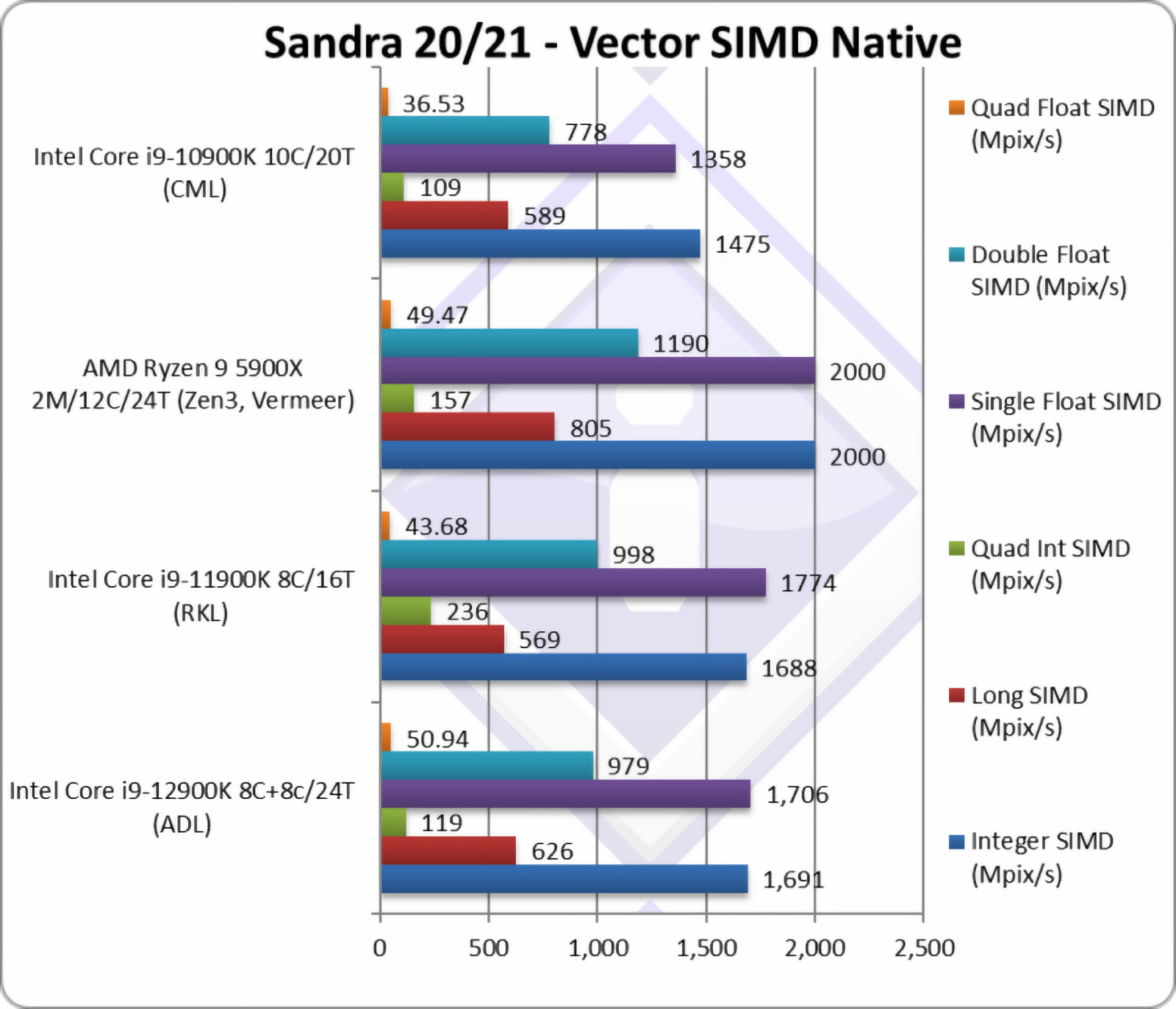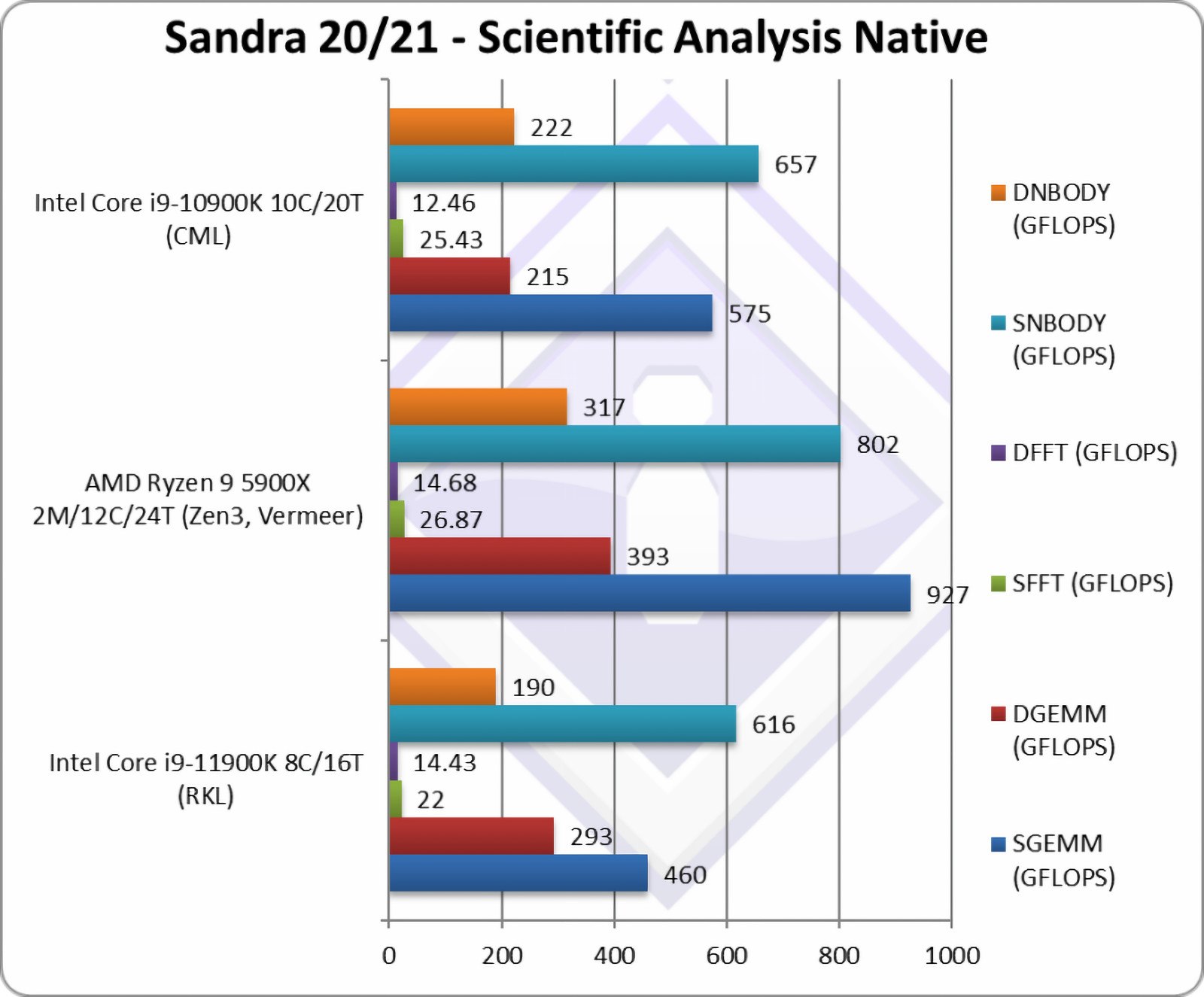
Intel's 12th gen Alder Lake-based desktop processor family dubbed Alder Lake-S alongside the flagship Z690 series chipset motherboards are rumored to launch on November 19 and that means the processors are currently undergoing rigorous benchmarking and testing by Intel as well as partner vendors. This is well explained from the ton of leaks we have been having for a while now.
The most recent one is related to a SiSoft Sandra performance leak yesterday which showed the flagship 16 core, 24 thread (16C/24T) SKU Core i9-12900K performing far worse than the 16C/32T AMD Ryzen 9 5950X counterpart. We weren't sure however if the data in the leaked benchmark was indicative of final performance for the i9-12900K.
Today, SiSoftware itself has shared official performance numbers for the 12th gen Alder Lake-S top-dog, Core i9-12900K and it seems yesterday's leaked figures weren't too far off. The firm has shared data across four different performance criteria to test Alder Lake's new Performance Hybrid approach which employs a mix of "Bigger" P-cores and "Big" E-cores.
The Core i9-12900K is (8+8) CPU part. The (8+8) indicates eight powerful P-cores and eight smaller E-cores. The design is similar to Arm's big.LITTLE. It has also tested the effect of removal of the AVX-512 instruction which Intel had introduced with its 11th gen Rocket Lake lineup.
The tests however were carried out on 64-bit Windows 10 and hence it's possible that we may see better results on Windows 11 since Microsoft's next-gen OS has optimizations specific to Alder Lake baked into it.
Here's how SiSoftware has summarised the overall performance of the 16C/24T Alder Lake-S (ADL) Core i9-12900K in comparison to the previous-gen 8C/16T Rocket Lake-S (RKL) Core i9-11900K and AMD's 12C/24T Ryzen 9 5900X:
in heavy-compute SIMD tests – that use AVX512 for RKL – ADL is overall similar in performance, perhaps a bit faster (+10%). Considering that AVX512 makes RKL about 40% faster vs. AVX2/FMA3 (though in some tests a lot faster) – this means ADL is about 50% faster in AVX2 than RKL using AVX2.
In non-SIMD tests, we see ADL 25-50% faster than RKL that, more impressively, allows it to be competitive with Zen3 (5900X). Thus for normal non-SIMD code, ADL will perform much better. RKL was not able to match Zen3 in this way.
Streaming (bandwidth bound) tests don’t benefit from the LITTLE/E cores thus here only the big/P cores should be used.
Speaking of the performance of Alder Lake, gaming on the new Intel design seems to be impressive which was revealed from the recent AotS:E leak. Alleged Cinebench performance leaks also show impressive output in the case of rendering.
Source and images: SiSoftware





















13 Comments - Add comment